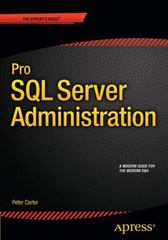Answered step by step
Verified Expert Solution
Question
1 Approved Answer
OVERVIEW Write a program, that keeps track of fares for flights and displays information about them. OBJECTIVES Create and use sorted doubly linked lists. Use
OVERVIEW
Write a program, that keeps track of fares for flights and displays information about
them.
OBJECTIVES
Create and use sorted doubly linked lists.
Use common algorithms to enhance software development.
Use best practices to effectively produce quality software.
ACADEMIC INTEGRITY AND LATE PENALTIES
Link to Academic Integrity Information
Link to Late Policy
EVALUATION
The evaluation of this assignment will be done as detailed in the Marking lecture in
Week of the C course.
PREPARATION
Understand how singly linked lists work.
Review the linked list examples.
REQUIREMENTS
Changed Requirements
Along with the destination and date for each flight, also get a floatingpoint number
from the user that represents the fare for the flight. The order of input for each flight
must be destination, date, and fare, all on separate lines.
o You can assume that the destination and date are Max characters in length.
o All fares entered by the user will be valid.
o The fare must be stored as a floatingpoint number eg double or float
o No other input is allowed.
Put the input into a sorted doubly linked list instead of the unsorted singly linked list
where the sorting is done by ascending by fare eg comes before If two
flights have the same fare, put the new entry after the previously entered entry.
o The sorting must be done such that each element is inserted into the proper
location in the list in turn. Do not create an unsorted list and then sort the list
afterwards doing this would result in a mark of and no further feedback for
the assignment
o At the same time, put the flight into another separate sorted linked list, where
the sorting is done ascending by destination eg Mexico City comes before
Miami If two flights have the same destination, put the new entry after the
previously entered entry.
o The user will never enter a flight with a destination and date that is already in the
list eg if "Oct. with a destination "Miami" is in the list already, the user will
not ask you to enter it again
o This means that you will have two separate head pointer variables and two
separate tail pointer variables.
Stop getting user input immediately once an invalid destination of or an invalid date
of is entered by the user.
o You should ignore the flight that had the invalid destination or date ie don't put
it into the linked list
After the input is complete, traverse the faressorted linked list, displaying one flight per
line with destination leftjustified with a width of characters date leftjustified with
a width of characters and fare leftjustified
o Do not doublespace the output.
Next, traverse the destinationsorted linked list, displaying with the same output format
as the previous traversal.
o Do not doublespace the output.
Next, obtain one flight destination and date pair destination before date on two
separate lines as additional user input. Search for that pairing in the destinationsorted
linked list. o If there is a match of destination and date, display the fare and prompt for
a new fare.
If the fare is changed, update the destinationsorted linked list with the
new fare. Then delete the flight from the faresorted linked list and
reinsert it
If the fare is unchanged, print a message indicating that and do nothing.
Again, the fare will always be valid.
o If there is not an exact match on the destination and date fields display a
message saying so and continue with the next step.
Redisplay both linked lists as before.
Once completely done, you must free all allocated memory. Yes, I do mean all.
ADDITIONAL FUNCTIONS
Create the findFlight function. It returns NULL if a flight is not found or it returns a
pointer to the node containing a flight, if both the destination and date are matched
with a casesensitive match, so you can use strcmp for this It takes three parameters:
FlightNode head: head of list
char destination: pointer to nullterminated string containing destination
char date: pointer to nullterminated string containing date o If only
the destination or the date are found but both are not found in the same
node, the flight is not found.
o You must call findFlight whenever you need to find a flight in a list.
Create the deleteNode function. It deletes a node, using three parameters:
FlightNode node: node to delete
FlightNode head: pointer to head of list
FlightNode tail: pointer to tail of list o The key to this
function is relinking pointers around the node before deleting. o If node
is NULL, it returns immediately. o It returns nothing. The assumption is
that the node is valid. o You must call deleteNode whenever you need to
delete a node in a list.
Step by Step Solution
There are 3 Steps involved in it
Step: 1

Get Instant Access to Expert-Tailored Solutions
See step-by-step solutions with expert insights and AI powered tools for academic success
Step: 2

Step: 3

Ace Your Homework with AI
Get the answers you need in no time with our AI-driven, step-by-step assistance
Get Started


